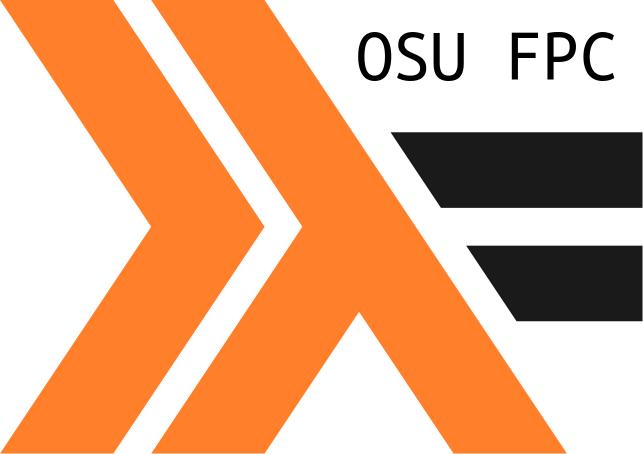
Context
This document is meant to be a one stop shop for getting help with Haskell. It will simply be a link dump based on relative skill level.
Beginner Haskell
- Learn You a Haskell (LYAH)
- Often cited as the recommended beginner’s guide and for great reason. You really cannot do better than this book to start learning Haskell. It’ll take you from absolute beginner to understanding Monads and Zippers i.e. intermediate Haskeller.
- Real World Haskell
- Made by some pretty famous Haskeller’s this book will is an absolute compendium on using Haskell for real projects. Although it is somewhat out of date now chapters 1 - 15 are still great and worth reading if you’re a beginner. I would suggest this after reading through LYAH.
- CIS 194
- The official undergraduate Haskell course taught by Brent Yorgey at Penn State. This is a great introduction to Haskell course that brings you from absolute zero to Monads. Make sure you do the exercises!
Intermediate Haskell
- What I Wish I Knew When Learning Haskell
- Another famous Haskeller’s compedium of information. This is a great website to check for information on different types of Monads, different GHC extensions, and other things you’ll hear in the Haskell community e.g.
mtl,MonadPlus,RWST Monad,Existential Types,GADTS,QuickCheck,SmallChecketc. It also includes a ton of practical advice on what to avoid in thePrelude, what extensions are safe and other stuff like that.
- Another famous Haskeller’s compedium of information. This is a great website to check for information on different types of Monads, different GHC extensions, and other things you’ll hear in the Haskell community e.g.
- A Gentle Introduction to Haskell
- A great read if you are past chapters 10 and 11 in LYAH. Also famous for not being so gentle so make sure you know some of what LYAH teaches first!
- Real World Haskell
- The rest of RWH. At some point you’ll want to understand how to profile your program in GHC, do some networking tasks, get familiar with the STM in haskell etc. Even though the book is recently out of date these chapters will still give you the context to understand the current libraries.
Advanced Haskell
- School of Haskell
- I don’t want to sell the school of Haskell short, there are plenty of useful beginner and intermediate resources here, but if you’re looking for “What is the best way to do streaming computations” (the conduit library), or how to I lazily stream data, in a compositional way (the pipes library), then school of Haskell is what you are looking for.
Miscellaneous
- Typeclassopedia
- Run by the aforementioned Brent Yorgey, this is a one stop shop for information on type theoretic structures. If you are wondering what a functor is, maybe what is it’s relationship with applicative functors and Monads, then this is what you want. Its full of useful information on monoids, semigroups, the foldable typeclass, you name it and it’s in here. I’d recommend this as a good resource for anyone who has gotten past chapter 10 or 11 in LYAH.
- Haskell IRC
- Seriously, Haskell has a much higher skill ceiling than any other language you’ve touched. If you find yourself struggling, then reach out and ask the community for help. They are very welcoming and will typically respond quickly.
- Haskell Wiki
- The Haskell wiki will have articles on pretty much anything you want to learn, including Haskell itself. But make sure you read the articles carefully and slowly, or else you may miss some nuance. I’m dropping this link here because it lists several other resources, including text books, wiki-books and the various Haskell subreddits like
r/haskellandr/haskellquestions.
- The Haskell wiki will have articles on pretty much anything you want to learn, including Haskell itself. But make sure you read the articles carefully and slowly, or else you may miss some nuance. I’m dropping this link here because it lists several other resources, including text books, wiki-books and the various Haskell subreddits like